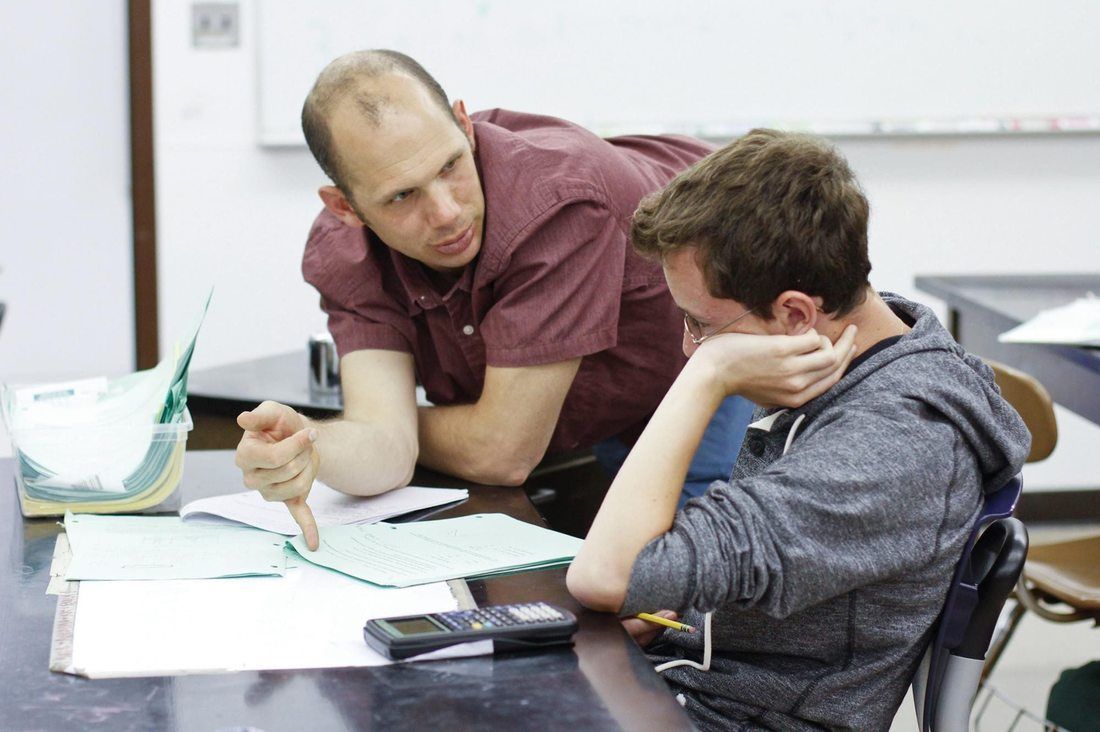|
|
|
Philosophically, I appreciate the debate over grading in schools. I even agree with parts of Alphie Kohn's case against grading. All that being said, in a few weeks I go back to school. To my classroom. To a vocation I LOVE. To a career that provides for my family. And grades are a reality. They are required. They aren't going away.
Keeping this in mind, it does me no good as an educator to engage in debates around the efficacy of grading. I simply want to serve my students the best I can. And, in some ways, I don't think grades should be terminated. Perhaps it is up to us, as educators, to develop new, and thoughtful "hacks" to our current system. To maximize the A-F system in our favor. In a way that serves our students. Builds metacognition. Limits apathy. Motivates. etc., etc., etc. I believe this is possible. And, here's the clincher: IT IS MORE POSSIBLE THAN WAKING UP TOMORROW AND GRADES BEING ELIMINATED. SO, IT'S ON ME TO BE BETTER FOR MY STUDENTS. So...in the spirit of sharing super tangible, grassroots techniques, below is what I'm going to try next semester. Disclaimer: It involves some "old school" moves, such as transitioning to a teacher paper and pen gradebook, but please know, it is all in the spirit of pedagogy. In the spirit of my Ed Tech Mission statement if you will.
This revised system will provide students with the ability to constantly know their "grade" in our class, while simultaneously developing enhanced student awareness of their own performance and build student agency over the grading process.
I have written in the past (click here and here) about my transition from formal lab reporting to the use of Google Slides as a student form of reporting lab work.
Today I sat down to begin the arduous process of finalizing all fall semester grades for my sophomore chemistry class and the benefit of using Google Slides their lab reporting format was clearly evident! My final "stack of papers" to grade was a shared folder full with our final lab practical reports: a group experiment where students determined the optimal H2-O2 ratio to fill a 2L bottle fo for maximum product upon ignition. Not only was I able to grade each project directly from my phone, but embedded video of procedures, screenshots of calculations, and clear images of laboratory procedures made for a meaningful assessment process. MORE IMPORTANTLY, the process of student creation and curation of their work using a Google Slide template (click here for the one used in this activity), was fluid, easy, and put the learning, rather than the reporting, at the forefront. Below is an embed of one group's "report".
I love teaching with manipulatives.
Whether it be scotch tape, thumbtacks, bubbles, hula hoops, balloons, cardboard, or magnets, physical objects can assist greatly in making that which cannot see, tangible. In chemistry class specifically, one of the most difficult concepts for students to grasp is the concept of Ionization Energy. Understood as the minimum amount of energy required to remove an electron, conceptually understanding the pull that an atom's positively charged nucleus has on the surrounding electrons is an important foundation for understanding a myriad of other concepts in chemistry. Given that a solid understanding of Ionization Energy requires an ability to visually abstract what is happening at the atomic level, it is of no surprise that students struggle with this concept. Below is a video of great manipulative I have been using to help students better understand Ionization Energy.
By using one magnet as the positively charged "nucleus", another magnet, wrapped in tape and attached to a rubber band as an electron, and cardboard as various energy levels "shielding" the outer electrons from the nucleus, students can easily model the strength of nuclear pull qualitatively (how "hard" it is to remove) and quantitatively (how "far" you can pull the rubber band).
Additionally, by adding cardboard layers (energy levels), the relationship between the distance an electron is from the nucleus and the associated Ionization Energy is easily modeled. Click here (scroll to #14) for an example of how I structured this manipulative in the form of a lesson in my chemistry class this year. Currently my freshman Biology class is concluding a unit on cell division.
Rather than the typical unit where students memorize the phases of the "Mitosis" (Anaphase, Metaphase...blah, blah), I decided to take a more applicable, perhaps controversial perspective, and teach the unit through a lens of the Cell Cycle checkpoints, and in particular, cancer biology. After acquiring parent and administrative permission, as I wanted to be sensitive to student personal experience with Cancer, we embarked a 5E/Hero's Journey, learning cycle. Click here for the entire learning cycle. For the "Application" phase of the learning cycle, rather than have students research and present the current state of cancer detection and treatment. I challenge them with the below prompt: After reflecting on what we have learned thus far about cancer treatments, and assuming unlimited resources, develop your own comprehensive cancer treatment idea. Click here to share for details on your submission. (groups of 2-3). With a basic understanding of the Cell Cycle, regulatory proteins, immunology and cellular respiration (The Warburg Effect), students came up with incredible ideas that combined not only information we have learned this year, but also mirrored many of the current cancer treatments without zero prior knowledge of the treatments themselves. Today in class (12/10/2018) we will crowdsource individual team ideas, with the goal of developing a comprehensive treatment plan that students can choose to further develop. Our modo: If Jack can do it, so we can we! Click here for view only access to today's document that contains team idea summaries and a space for our collaborative solution (in progress). |
Categories
All
Archives
March 2024
|


 RSS Feed
RSS Feed